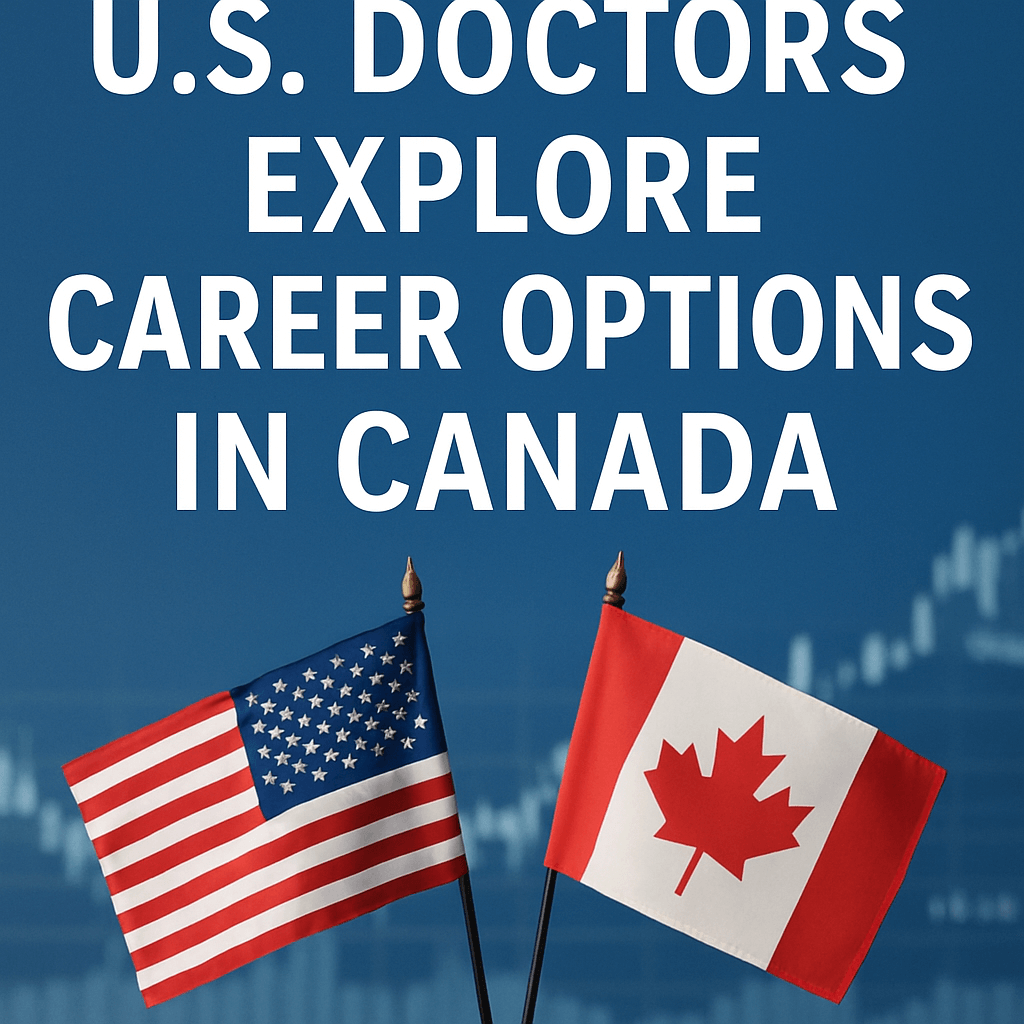U.S. Doctors Explore Career Options in Canada

As major political shifts unfold in the United States, an increasing number of American physicians are considering relocating to Canada for various reasons, including the current political climate under the Trump administration. This trend has intensified following the administration’s reelection and a series of contentious policies impacting healthcare professionals and their work environment.
Personal Stories of Migration
Among those making the transition is Michael, an emergency room physician trained in the U.S., who recently relocated his family to a small-town hospital in Canada. Concerned about possible reprisals from the Trump administration should he return, Michael chose to remain anonymous in his interviews with KFF Health News and NPR. He expressed a sense of guilt for not remaining to fight against policies he disagreed with but affirmed his decision by stating, “Too much of America has simply grown too comfortable with violence and cruelty.”
“Part of being a physician is being kind to people who are in their weakest place,” Michael reflected. “I feel like our country is devolving to really step on people who are weak and vulnerable.”
Michael’s story is representative of a broader movement among U.S.-trained doctors seeking a different healthcare landscape. Interest in Canadian medical licensing has surged significantly; the Medical Council of Canada reported a staggering 750% increase in applications from American physicians in a recent seven-month period, rising from 71 to 615. This shift has prompted Canadian licensing organizations to report notable increases in both applications and approvals, especially from doctors citing political motivations.
The Surge in Demand
Healthcare recruitment agencies in Canada have noted an unprecedented interest from American doctors. John Philpott, CEO of CanAm Physician Recruiting, indicated that many of the inquiries he receives include remarks from physicians expressing embarrassment about their American identity and a desire to exit the country due to its deteriorating social atmosphere. His organization saw a remarkable 65% increase in inquiries from January to April, with up to 15 American doctors contacting them daily for job opportunities in Canada.
Market Dynamics and Educational Discrepancies
Canada, with its universal, publicly funded healthcare structure, has become an attractive alternative for U.S.-trained doctors, particularly as the American system continues to grapple with its challenges. Historically, discrepancies in medical education standards made it challenging for physicians to migrate north. However, in recent years, many Canadian provinces have streamlined their licensing processes. For instance, expedited licensing has encouraged U.S. physicians to transition into the Canadian healthcare system more readily.
- **Recent surge in applications for medical licenses in Canada**
- **Streamlined processes in various provinces**
- **Growing awareness of cultural differences in healthcare provision**
Political Influences on Healthcare Professionals
The Trump administration’s policies have had notable impacts on various sectors, including healthcare. Key actions such as the appointment of controversial figures to health bureaucracies, shifts in healthcare funding, and aggressive rhetoric around public health issues have left many healthcare professionals feeling uneasy. Specific measures, including budget cuts to Medicaid and restrictive policies surrounding gender-affirming care, further exacerbate the sense of instability felt among American physicians.
Returns to Canada and the California Effect
The trend has also seen an influx of Canadian doctors returning from the U.S. prompted by the adverse effects of shifting political landscapes in America. These expatriate Canadians often prefer to return to their roots, where they perceive a more supportive healthcare structure. For example, the College of Physicians and Surgeons of Ontario reported a record high of U.S.-trained doctors achieving licensure and practicing across Canada.
Conclusion
As Michael continues to adapt to his new role in Canada, he reports a steady communication flow from American colleagues seeking guidance on making similar moves. This shift is not just a personal journey for many doctors but a reflection of larger systemic stresses in the American healthcare system, which could continue influencing the demographics of practicing physicians across North America.
The migration of U.S. doctors to Canada represents a complex intersection of personal choices driven by political climate, healthcare dynamics, and professional aspirations. As more doctors contemplate relocation, the Canadian healthcare system may face new challenges and opportunities in accommodating an influx of American medical talent.